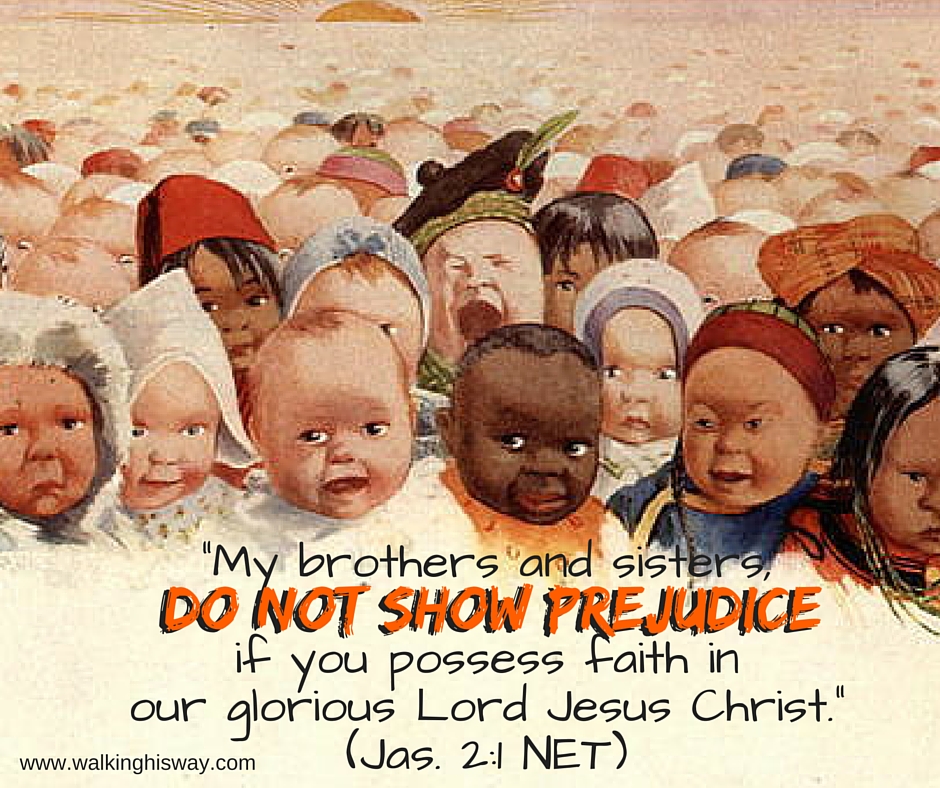 James 2:1 “My brothers and sisters, do not show prejudice~| if you possess faith in our glorious Lord Jesus Christ.”
James 2:1 “My brothers and sisters, do not show prejudice~| if you possess faith in our glorious Lord Jesus Christ.”
Learning of God’s qualities changes our moral perspectives. Of His many attributes that humans can imitate (such as justice, grace, love, mercy, faithfulness, goodness, etc.), impartiality has an essential impact on human relationships.
Humans tend to classify or categorize each other by looksm mannerisms, dress, intelligence, race or ethnicity, and especially success, wealth, and power symbols (possessions and positions).
We often classify people to selfishly determine whom we want to associate with, whom can we use, whom we need to impress, or who can help us advance our agenda.
God revealed Himself in the Old Testament as “the Lord your God . . . the God of gods . . . who does not show partiality nor take a bribe” (Deut 10:17). Wisdom declares, “To show partiality in judgment is not good” (Prov 24:23).
The Old Testament concludes with God’s description of Israel’s unfaithfulness: “I also have made you despised and abased before all the people, just as you are not keeping My ways but are showing partiality in the instruction” (Mal 2:9).
The New Testament revealed the concept of the body of Christ, where every member partakes equally of God’s Spirit and is bonded to each other. Yet prejudice and favoritism crippled the advance of the gospel for years.
Gentiles were virtually excluded from the Jewish Christian church (see Acts 11:19) until Acts 15 (AD 49). The church knew better: Peter preached to Cornelius that “in every nation whoever fears Him and does what is right is welcome to Him” (Acts 10:35), but their emotions betrayed their judgment.
James eloquently condemns social snobbery and partiality in the church and toward outsiders because it contradicts the character of God. The key is to see others as Christ sees them: equally needing a Savior.
Jesus taught, “Do not judge according to appearance, but judge with righteous judgment” (Jn 7:24). How open are you to accepting others outside of your group? Do you love people of all nations? How often do you help the poor or less privileged?
“Lord, it is so easy to judge people or categorize them as inferior or unworthy. Oh, to learn to think of people as You do, without rejection or criticism! Help me see people as Your creation and to value how they are, even when they are different from me.”
